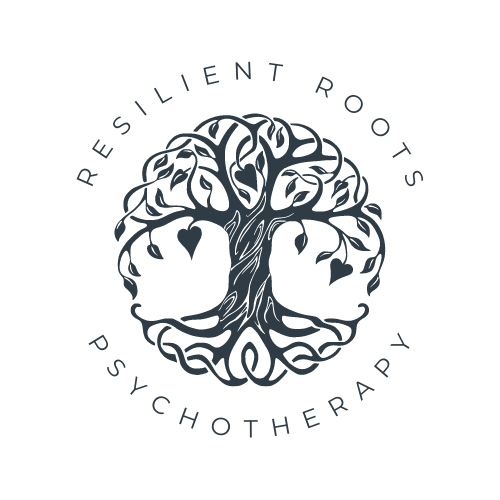Finding LGBTQIA+ Affirming Therapy: A Guide to Empowering Mental Health
In a world where prejudice and discrimination persist, LGBTQIA+ affirming therapy creates a safe haven where you can freely explore your identity and overall mental health. It acknowledges the unique challenges you face as a member of the LGBTQIA+ community and provides a compassionate space to navigate them.
For individuals within the LGBTQIA+ community, it's essential to seek therapy that understands, supports, and affirms their unique experiences. In this comprehensive guide, we will explore practical steps and valuable insights to help you find LGBTQIA+ affirming therapy. By prioritizing your mental well-being and accessing therapy tailored to your identity, you can embark on a transformative path toward healing and empowerment.
The Importance of LGBTQIA+ Affirmation in Therapy
LGBTQIA+ affirming therapy creates a safe and inclusive space where your unique identity is honored and respected. It acknowledges the specific challenges faced by LGBTQIA+ individuals, such as societal prejudice, discrimination, and internalized stigma. Affirming therapy embraces your sexual orientation, gender identity, and expression, providing an environment where you can freely explore your mental health and work towards personal growth. By seeking therapy that affirms your identity, you can feel validated, supported, and empowered on your journey to mental well-being.
Researching LGBTQIA+ Friendly Therapists
Begin your search for LGBTQIA+ affirming therapists by conducting thorough research. Look for online directories, mental health organizations, and LGBTQIA+ community centers that provide resources for finding LGBTQIA+-friendly therapists. Most platforms allow you to filter therapists by expertise, specializations, and therapeutic approaches. Through filtering, you can narrow down your options and find therapists who are knowledgeable, compassionate, and attuned to your needs and the needs of the LGBTQIA+ community.
The Power of Asking the Right Questions
When contacting potential therapists, don't hesitate to ask specific questions that address your LGBTQIA+ concerns. Inquire about their experience working with LGBTQIA+ individuals, their familiarity with gender and sexual diversity, and their commitment to ongoing education on LGBTQIA+ issues. Pay attention to their responses, listening for empathy, understanding, and cultural competence. A therapist who values your identity and understands its impact on your mental health journey will be better equipped to provide the support and guidance you need.
Here are some questions you may consider asking a potential therapist:
Have you received any specialized training or education in LGBTQIA+ issues?
How experienced are you in working with LGBTQIA+ clients?
What is your understanding of the unique challenges faced by LGBTQIA+ individuals in relation to mental health?
What steps do you take to create a safe and inclusive space for LGBTQIA+ clients?
How do you stay updated and informed about current LGBTQIA+ issues and developments?
Can you provide examples of how you have supported LGBTQIA+ clients in the past?
How do you ensure your therapy practices are free from heteronormative or cisnormative assumptions?
Are you knowledgeable about LGBTQIA+-specific resources and support networks that can complement therapy?
Seek Recommendations and Community Support
Tap into the strength of community support by seeking recommendations from LGBTQIA+ friends, support groups, or online communities. These trusted sources can offer valuable insights and personal experiences, helping you navigate the process of finding LGBTQIA+ affirming therapy. Share your anxieties and concerns within these safe spaces, and you may discover recommendations for therapists who have positively impacted others within the LGBTQIA+ community. The support of peers who understand your journey can provide comfort and guidance as you find the right therapist.
Consultations and the Therapeutic Fit
Before fully committing to therapy, schedule consultations or initial assessments with potential therapists. This step allows you to evaluate the therapeutic fit and determine if they align with your needs. During these meetings, you can ask the above questions and openly discuss what brings you to therapy, LGBTQIA+ experiences, and therapy goals. Pay attention to how the therapist responds, their level of empathy, and their ability to create a safe and validating environment. Trust your intuition and assess whether you feel comfortable, respected, and understood in their presence. Remember, therapy is a collaborative journey, and finding a therapist who respects and affirms your LGBTQIA+ identity is essential to your well-being. If you feel uncomfortable with their responses, continue searching for a therapist who will better meet your needs.
Exploring Online Therapy Options
In some cases, LGBTQIA+ affirming therapists may be limited in your local area. However, the rise of online therapy platforms provides alternative avenues for accessing care. Many online therapy services now offer specialized support for the LGBTQIA+ community, connecting you with therapists who are knowledgeable and understanding of the unique challenges you may face. Online therapy provides the convenience and flexibility of receiving therapy from the comfort and privacy of your own space, ensuring that geographical barriers do not hinder your access to affirming support.
Finding LGBTQIA+ affirming therapy is a powerful step toward prioritizing your mental health. By conducting thorough research, seeking recommendations, asking the right questions, and embracing the guidance of community support, you can find a therapist who understands, supports, and celebrates your authentic self. You deserve therapy that honors your identity and empowers your journey toward healing and self-discovery.
Don't settle for anything less. If you’re ready to take the next step, reach out today to schedule a consultation. Together, let's break down barriers and build a future of mental well-being for all members of the LGBTQIA+ community.

